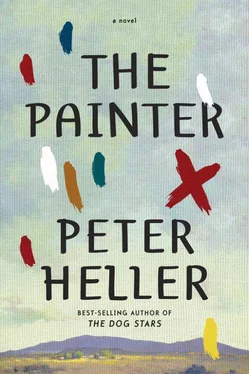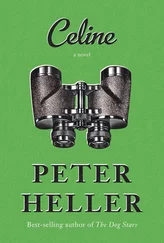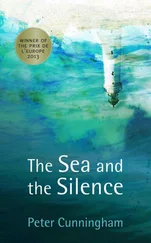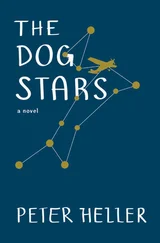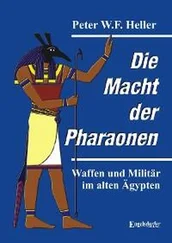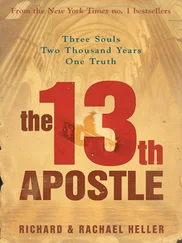“Sit down,” she said. “I made coffee.”
I sat. She swayed in her long skirt to the counter. There were two cups already on the red Formica of the table. She brought the pot and poured them full. She sat across from me. My hands cupped the heat of the mug and my eyes lifted to hers. She shivered.
“Jim,” she said. Just that, the simple utterance of my name. A confirmation. I existed. Here I existed, just as I was. Then: “What in the world have you been up to? Wow.”
She drank her coffee and never took her eyes off me. It was odd, I did not feel pinned and wriggling on the wall, scrutinized, never with her. I felt held and fully seen. There’s a big difference.
“It won’t bring her back,” she said.
I nodded.
“You are burning up.”
I nodded.
She smiled at me, her eyes worried.
“Do you remember when we all went to the zoo?”
“Of course.”
I wouldn’t forget it. I had a show opening in Denver, at the Museum of Contemporary Art, and a patron who had a pied-à-terre right on Cherry Creek offered us her condo for the weekend. We invited Irmina and all piled into my cranky, loud four door GMC pickup and drove over La Veta Pass and up the interstate to Denver. The condo was on the second floor of a fancy new four story building sided with corrugated sheet metal and accented with blocks of primary colors. We pushed open the door, and I remember that it smelled rich—smelled like wool Persians and fur throws and glove leather. Smelled like freedom, the freedom from financial worry I knew I would never have, the freedom to buy a twenty thousand dollar calfskin couch.
Cherry Creek, the actual creek, was a clear gravel-bottom stream that ran between two bike paths and which we could hear rushing over its ledges below, along with the deeper thrum of traffic and jingle of bicycle bells, and the tatters of conversation from people walking on the path just below us. I remember pulling the sliding balcony door wide and being carried by the sounds. It brought me back I guess to San Francisco, to the last time I had spent much time in a big city. The lostness of myself back then, the first stirrings of enchantment with art. I stood on the balcony and I thought, Here you are, not lost now. You have a show at a top museum, sonofabitch. I looked down at my Little One, clinging to the balusters of the railing and pointing down to a pair of mallards in the creek. I looked over at my dear friend who was blinking in the bright early afternoon and taking in the almost musical flows of traffic, and I looked over my shoulder like Orpheus, back to my beloved, to count Cristine among the bounty, reckoning her among the other gifts like an object of gold. Never do that. Never say: I am so frigging lucky.
Her back was to us, she was at the sideboard pouring out a decanter of single malt scotch into a tumbler of ice. She was wearing a halter top and her skin was soft copper. She had a beautiful back, strong and slender, and seeing it, unprotected, under the black curls that spilled to the faint wings of her shoulder blades, seeing it I almost forgave her everything. The rages, the drinking, the absences. I loved her more right then than I had ever loved anything but Alce. I thought: She is regal. And she was, in a way. She was a Marquez from Mora County and her family had been in those valleys since something like the fifteen hundreds. When she turned I knew by the shine in her eyes she was already on her second scotch.
“Damn, this is good,” she said. “Best I ever had. You want one? You guys?”
She shook the ice to chime against the glass and toured the room, holding the drink with the nonchalance of a Gatsby flapper. Stopped at an end table, picked up a photo of what must have been the patron and her family on top of a wooded mountain with lakes or inlets behind it, maybe Maine. They were fit and tan and had very white teeth. “The people you’re mixing with now. Swank,” she said, turning the frame toward me. “Look, the daughter’s t-shirt says YALE. My my.” She set it down and went to an art deco framed print on the wall: Dartmouth Winter Carnival 1981, a ski jumper sailing off a hill, a church spire in the valley below him. Cristine tapped the glass with a tapered fingernail, right at the jumper’s head. Her silver bracelets jingled. “Careful, young man,” she said. “You think you are an eagle now, unh huh. There are things out here none of this snow can prepare you for.”
I said, “I was thinking maybe we could take Alce to the zoo.”
“The zoo?” Her eyes blurred. She had to shake her mind free of the Ivy League winter.
“We have four hours until the opening, and it’s pretty close to here. They have polar bears. Polar bears that play in the water. Where you can see through the glass.”
She twisted her lips into a smile. “Alce will go crazy.” She knocked back the rest of the tumbler. “White people, white snow, white bears.”
We got back in the truck and drove to the zoo. I opened all the windows against the reek of booze. I bought the tickets while Cristine fished a beer out of the cooler in the truck. She couldn’t take the can through the turnstile, so she downed the whole thing in a frat boy chug. Even then she was glorious: her smooth forearm flexed, her strong shoulder swelled with layers of smooth muscle, the wide silver bracelet glinted at her wrist. No big deal, I told myself, she’s on vacation.
For an hour we were a perfect family. It was mid-afternoon on a mid-May school day and not crowded, and we walked four abreast, hand in hand on the wide paths. We gawked at the peacocks wandering freely, at the elephants bathing in dust, at the leopards stretched along the limbs of a huge tree in such a trance of stillness they seemed emitted by the dappled shade. I thought, Relax.
It will never get better than this. You are about to open a big show, everyone you care about is okay. You have a family.
Alce was floored by everything. In total thrall. She tugged us along like the streamer to a little kite. The hyenas transfixed her. The Komodo dragon wanted to eat her through the glass and she wanted to be eaten. She ran ahead, a double size pink cotton candy flagging her like a showy flower. She got it sticky all over her face and took it into the bird house and some kind of tropical finch landed on her shoulder and surprised them both. Maybe it wanted the candy. The bird twitched and they both let out a squeak and the finch flew off and Alce burst into hysterical laughter. Cristine picked up her daughter and squeezed and said, “You are like St. Francis, you know that? The birds can’t help themselves. Me neither!”
We strolled up to the polar bears. We could hear sea lions barking nearby. I wondered if the smell of prey so close drove the polar bears crazy. Probably not, they were probably prodigiously fed.
“Let’s check out the underwater window first,” I said. “Yeah, yeah!” chimed Alce. The bears were playing. Luck. Two huge white adults and one little one swam through the green water in a parody of walking, then dove with the sudden graceful fluidity of a loon. From ten feet away we gasped. Ten feet from the big plate glass. The bears were playing keep-away with a rubber fish the size of a twenty pound salmon. Alce ran forward. She forgot all about her cotton candy and dropped it on the way. A family was already there, pressed against the glass, three towheaded kids Alce’s age and older, and a mom with streaked blond hair and gold scallop earrings and a lily patterned summer dress. Alce pushed through the two boys, completely focused on the bears. “Hey, hey,” called Irmina, laughing, “Cálmate Alcita , be polite.” “Mummy!” cried the littlest, “the Mexican girl pushed me!” The mother was just turning from the glass. Alce said, “Am not! I’m not Mexican!” “You are, too!” insisted the boy. “I heard you speaking Mexican!”
Читать дальше
